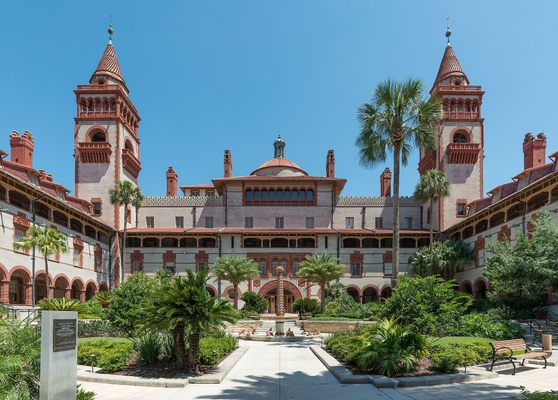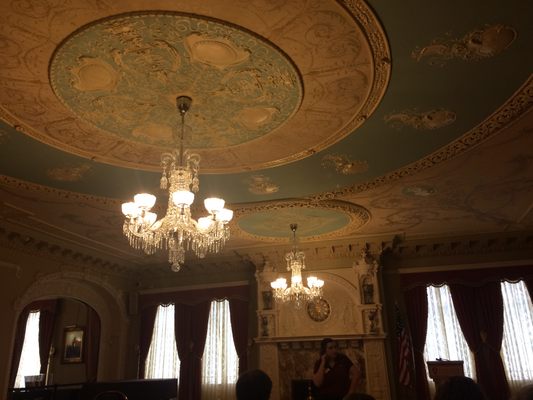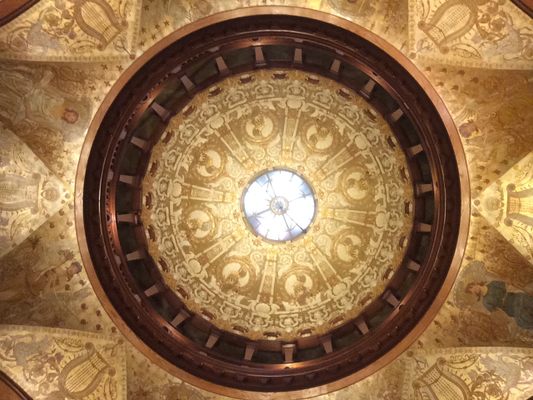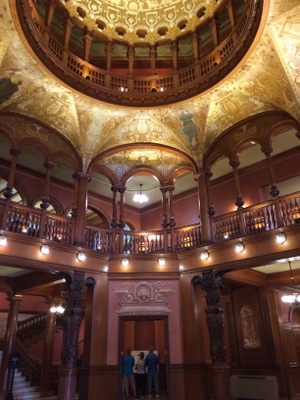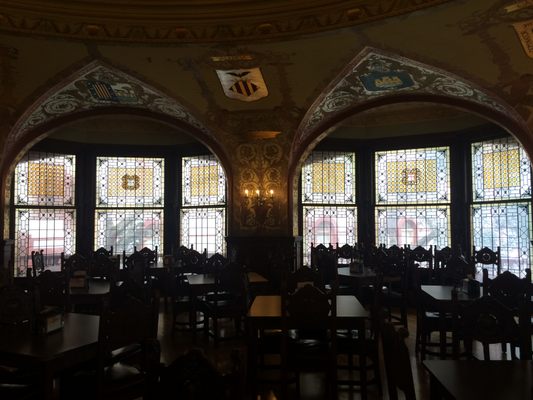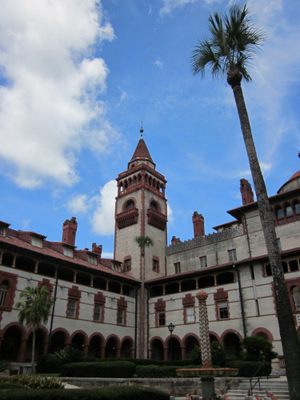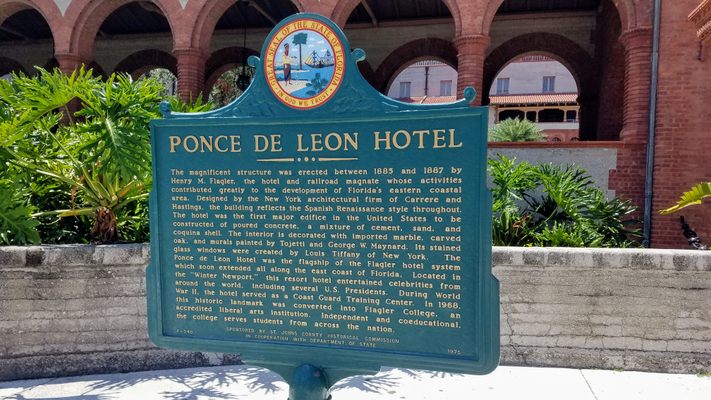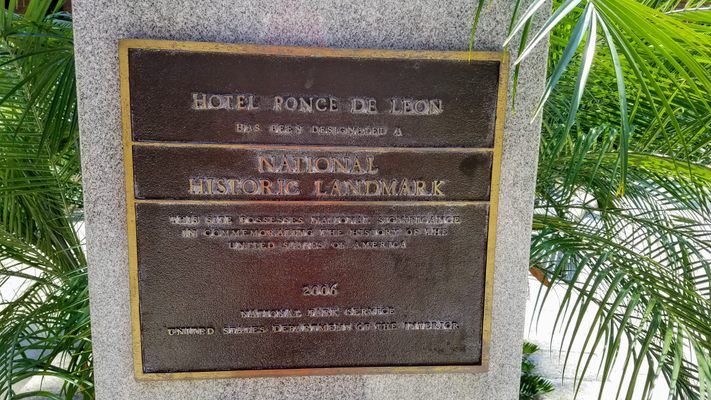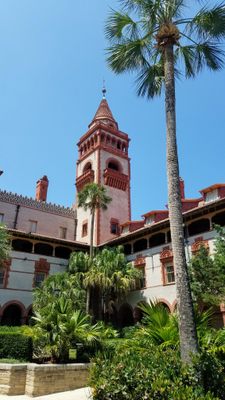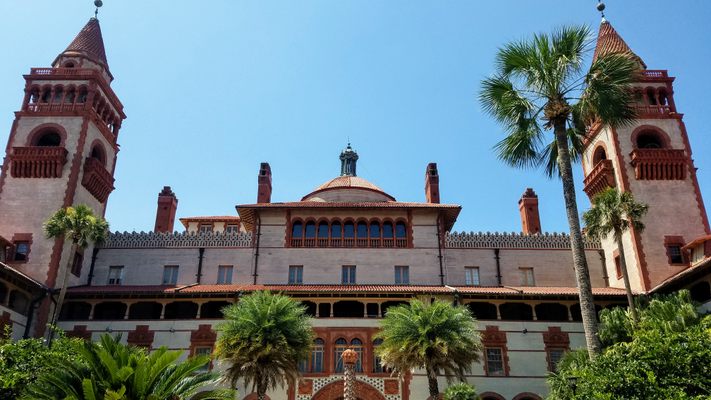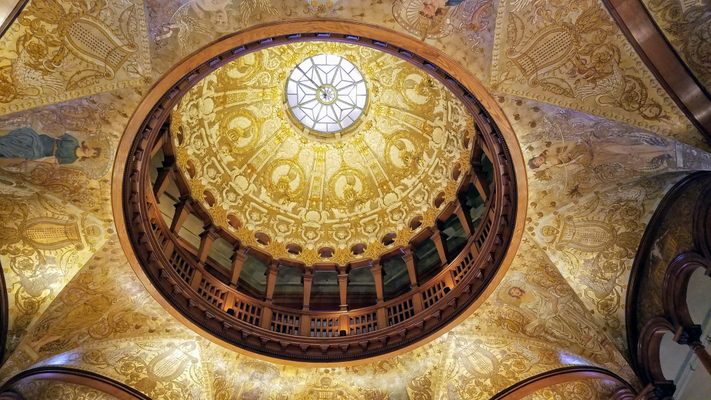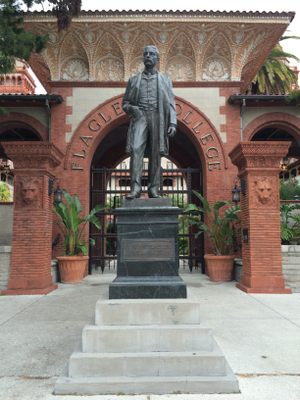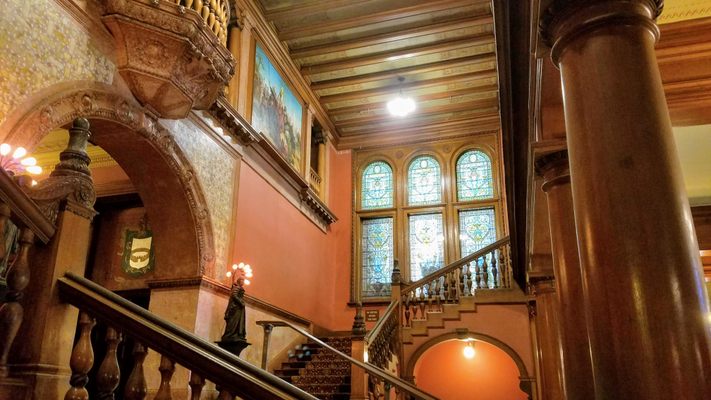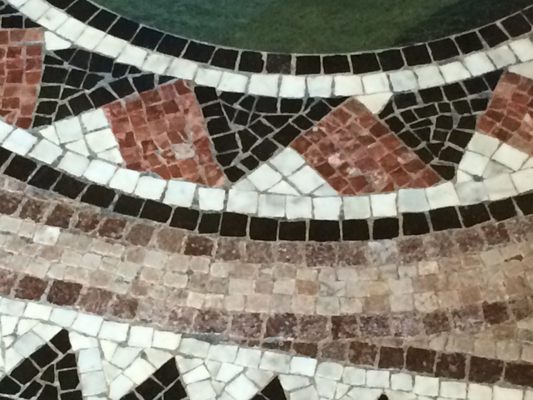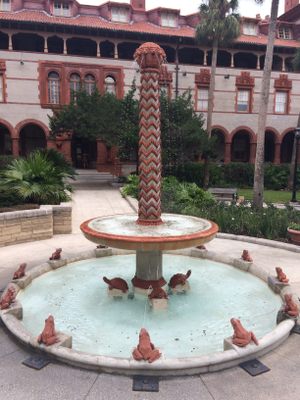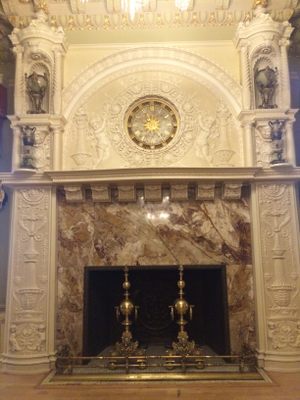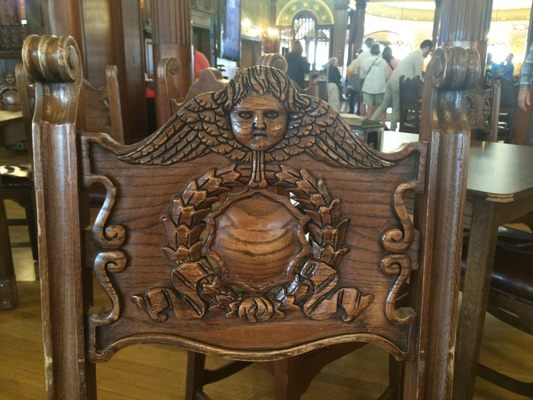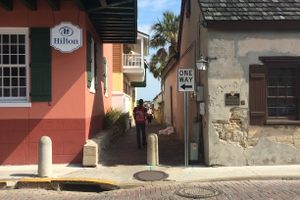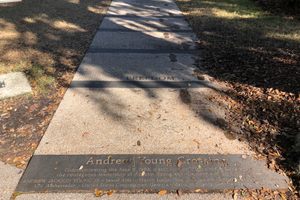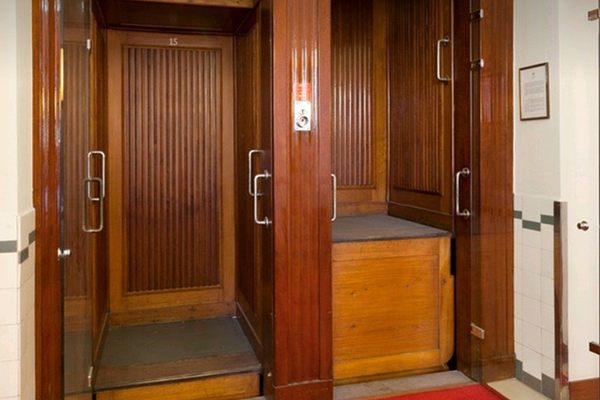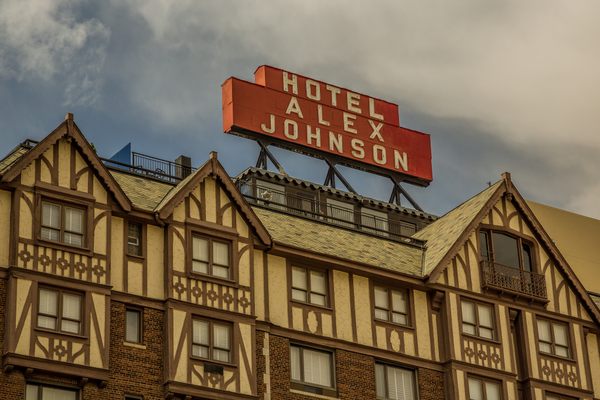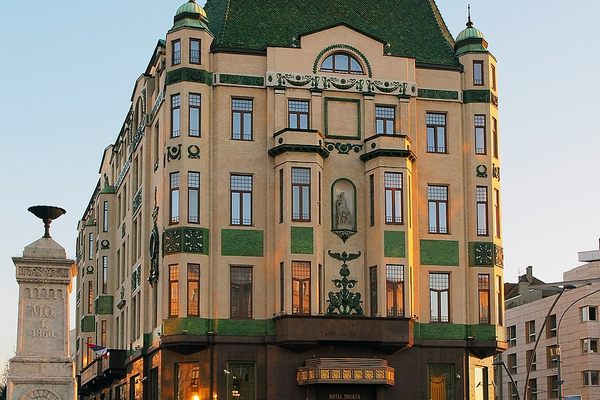About
The Ponce de León Hotel is so unique and opulent that the man who built it more than 100 years ago is rumored to still drop by from time to time.
Now the centerpiece of Flagler College, when it was originally constructed in 1888, it was viewed by many as the most luxurious hotel of its day. Built by Standard Oil co-founder and railroad tycoon Henry M. Flagler, the opulent building is filled with ingenious architectural secrets.
For one, it has had electricity since its opening. A novelty at the time, the building was wired for electricity by none other than Flagler's friend Thomas Edison. Unfortunately, Edison chose to use direct current generators, which would cause the bulbs to sometimes explode. Guests were so terrified by this that Flagler had to hire staff for the specific purpose of turning the switches on and off.
The courtyard fountain immediately draws the eye. From ground level it appears to be a fountain with 12 frogs carved at equal intervals around the outer edges and four turtles carved closer to the base. However when looking down at it from above, the fountain acts as a sundial—the frogs tell the hours, the turtles tell minutes.
The Rotunda, too, is perfect Belle Époque beauty. Painted with a wraparound mural symbolizing the four elements (Earth, Water, Air, and Fire) as standing goddesses, and the female figures of the four stages of European exploration (Adventure, Discovery, Conquest and Civilization), the ceiling is a dazzling gold artwork by George W. Maynard (who would go on to paint the murals in the the Treasures Gallery in the Thomas Jefferson Building of the Library of Congress). Maynard signed his name in the blue collar of Lady Discovery, although Flagler wanted the work unsigned.
Though this glimmering palace appears to be perfection incarnate, there are actually intentional flaws built into the architecture. Allegedly to keep the hotel from being an affront to God by being "too perfect," Flagler chose to incorporate some barely noticeable flaws. One example is the floor mosaic on the rotunda floor, in which every triangle, except for one, has a single white tip. Of course, it's just as possible that such flaws were the mistakes of an errant workman or two.
Upon entering the the dining hall, one might assume Flagler first years come here to be assigned a house by the sorting hat a la Harry Potter. The first and most obvious feature of the room are the windows, which comprise the single largest private, currently in-use collection of Tiffany stained glass works in the world. More subtle, but no less fascinating, are the chairs hand carved with disapproving cherubic faces.
In 2016, the Tiffany Glass was reviewed on an episode of Antiques Roadshow and said to be worth $3.5 million. After that, they were covered on both sides with bullet-proof glass to ensure they would not be ruined by hurricanes or man.
The Ladies Parlor is unbelievably opulent. It contains the largest piece of white onyx in the western hemisphere, carved and inlaid with an original Thomas Edison clock. Two Austrian crystal chandeliers (from mines that have now been depleted) dangle from the center of an ornate blue ceiling design also created by Louis Tiffany.
During its days as a luxury resort the Ponce hosted some big names. Frederick Vanderbilt and William R. Rockefeller attended the opening. Presidents Grover Cleveland, William McKinley, Theodore Roosevelt, Warren Harding and Lyndon Johnson all stayed there, not to mention Mark Twain, Babe Ruth, Somerset Maugham, Robert Frost, Ernest Hemingway, John Dos Passos and many others. Since Flagler College's acquisition of the hotel in 1968, only college students inhabit these halls.
Well, mostly. A few guests are said to have stuck around. In Saint Augustine (one of the oldest cities in the United States) no historic building is complete without a ghost or two. Among those said to haunt the hotel are Flagler's mentally ill wife, Ida Alice, who stares at a panel wall that used to display a portrait of her husband, a suicidal mistress of Flagler's (said to dangle from a chandelier on the fourth floor of the girls dormitory), a lady in blue, a mischievous little boy, and of course, Flagler himself, who strolls the corridors and surprises students from time to time by looming silently at foot of their beds.
Related Tags
Know Before You Go
Tours depart daily at 10 a.m. and 2 p.m. from inside the lobby of Flagler College. Tickets can be purchased up to 5 minutes before the start of the tour.
Community Contributors
Added By
Published
May 12, 2017
Sources
- https://en.wikipedia.org/wiki/Ponce_de_Leon_Hotel
- https://www.nps.gov/nr/travel/geo-flor/26.htm
- http://www.flagler.edu/about-flagler/hotel-to-college/
- http://www.waymarking.com/waymarks/WMBD69_Ponce_de_Len_Hotel_Dome_St_Augustine_FL
- https://365atlantatraveler.com/things-to-do-in-st-augustine/
- https://en.m.wikipedia.org/wiki/Classical_element?wprov=sfti1
